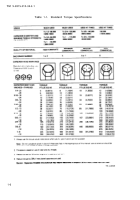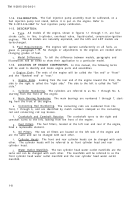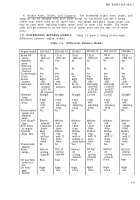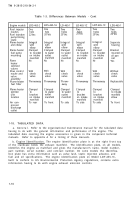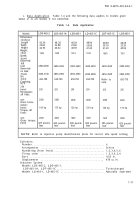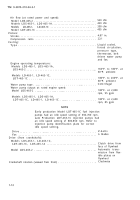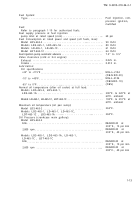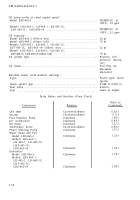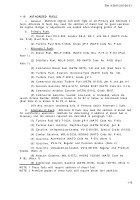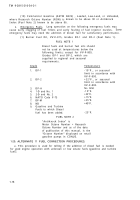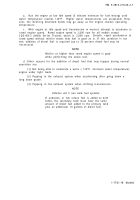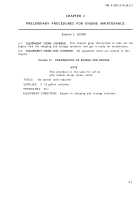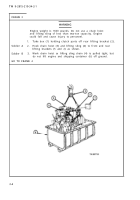TM-9-2815-210-34-2-1 - Page 30 of 259
TM 9-2815-210-34-2-1
(10) Commercial Gasoline (ASTM
where Research Octane Number (RON) is
D439) , Leaded, Low-Lead, or Unleaded,
known to be above 90 or Antiknock
Index (Fuel Note 2) known to be above 86.
e .
Emergency Fuels.
Long operation on the following emergency fuels may
cause early clogging of fuel filters and early fouling of fuel injector nozzles.
Some
emergency fuels may need the addition of diesel fuel for satisfactory performance.
(1) Burner Fuel Oil, VV-F-815, Grades FO-1 and FO-2 (Fuel Note 1).
Grade
1.
DF-1
FUEL NOTE 1
Diesel fuels and burner fuel oils should
not be used at temperatures below the
following limits; except for VV-F-800,
Grades DF-1 and DF-2, which are
supplied to regional and seasonal
requirements.
Temperature
-10°F. ,
or seasonal
limit in accordance with
VV-F-800.
2.
DF-2
+32°F., or seasonal
limit in accordance with
VV-F-800.
3.
DF-A
No limit
4.
1-D and No. 1
-10°F.
5.
2-D and No. 2
+32°F.
6.
NATO Code F-75
+15°F.
7.
DF-M
+35°F.
8.
ND
+40°F.
9.
Gasoline and Turbine
Fuels to which Diesel
fuel has been added.
-25°F.
FUEL NOTE 2
“Antiknock Index” is
Motor Octane Number + Research
Octane Number and as of the date
of publication of this manual, is the
“Octane Number” displayed on retail
gasoline pumps in CONUS.
1-20. ALTERNATE 11 FUEL CORRECTION PROCEDURES.
a. This procedure is used for telling if the addition of diesel fuel is needed
for good engine operation with unknown or low octane fuels (gasoline and turbine
fuel).
1-16
Back to Top

